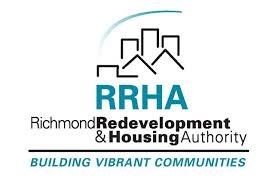RRHA to sell 26 homes to highest bidders
Jeremy M. Lazarus | 6/24/2017, 12:29 p.m.
A major opportunity to create affordable homes for families with below average incomes in Richmond is going by the wayside.
Next week, the Richmond Redevelopment and Housing Authority will offer 26 houses scattered around the city to the highest bidders. Most of the houses are boarded up and have been vacant for at least 10 years.
Higgenbotham Auctioneers has been contracted to handle the bidding at 10 a.m. Thursday, June 29, at the Greater Richmond Convention Center in Downtown.
T.K. Somanath, the RRHA’s chief operating officer, confirmed that the investors who purchase and fix up the properties will have no obligation to market them to low- and moderate-income families who increasingly struggle to find housing they can afford as area property values continue to rise.
Richmond City Councilwoman Ellen F. Robertson, 6th District, who has been a leading council advocate for affordable housing, calls the auction “a blow” to efforts to create affordable housing in a community that already has a severe shortage.
Recent studies indicate that one in three Richmond families pays more than 30 percent of their income for housing, while one in five families spends as much as 50 percent of income to cover rent or a mortgage.
Ms. Robertson, who chairs the city’s Affordable Housing Trust Fund Advisory Board, said the board would have been interested in working with RRHA to keep the houses in the affordable category.
But she said RRHA never talked with her or, as far as she knows, any of the city staff associated with the housing trust fund about the possibility.
She said RRHA was able to go the auction route with approval from its overseeing agency, the U.S. Department of Housing and Urban Development, because of the city’s failure to create “a housing policy that requires all to address affordable housing, especially government and private groups receiving any housing funds from the city.”
“What’s missing is a policy and a vision and an agency charged with carrying out the city’s housing policy,” Ms. Robertson said.
Mr. Somanath defends the auction as a last-ditch method to get rid of the properties that have been moldering and degrading neighborhoods for at least 10 years. RRHA acquired the houses over the last 50 years or more in an attempt to scatter public housing and to alleviate the concentration of low- to moderate-income housing.
Some of the homes were leased to families for decades, but RRHA has been unable to keep up the homes because of a decline in federal maintenance funds.
Mr. Somanath said RRHA created a program in 2007 to sell a batch of the homes to tenants, but after 11 sales, the program collapsed as the Great Recession tightened credit. A recent effort to resume sales to tenants failed when most could not qualify for mortgages, he said.
In a second step, RRHA then offered 64 of the houses to nonprofits for $1. However, he said only project:HOMES and Habitat for Humanity responded. Even larger groups like the Better Housing Coalition stayed away.
Candice Streett, executive director of the Virginia Local Initiatives Support Corp., which lends to nonprofits for housing development, said other nonprofits were aware of the RRHA homes, but were too cash strapped or too tied up in other developments to take advantage.
Project:HOMES agreed to take 26 properties and Habitat agreed to take 12 under the condition that the organizations would renovate and market the houses within 18 months and would sell to families with incomes at or below 80 percent of the Richmond area median, Mr. Somanath said. The sale of those properties has not yet been completed.
(The Richmond area median income for a family of four in 2017 is $78,800. Four-person families with a total income of $61,900 are at 80 percent of median.)
Mr. Somanath confirmed that RRHA never sought approval to offer public housing residents or others the opportunity to buy for $1, even though HUD has a program that allows people to buy foreclosed Federal Housing Administration properties for $1 if they do not sell within six months.
The good news, Mr. Somanath said, is that RRHA still has 54 more scattered site homes it soon will seek HUD approval to sell. That will offer another opportunity for affordable housing groups, he said.
That could open the door for some nonprofits that never were aware of the first round, such as Kenneth Williams, founder and director of the Adult Alternative Program that helps formerly incarcerated people re-enter society.
He said he did not learn about the 26 RRHA houses until a few weeks ago. His program needs inexpensive homes, he said. His organization helps former jail and prison inmates rebuild their lives by teaching them to renovate homes, which his group would seek to sell for a profit to support the organization.








